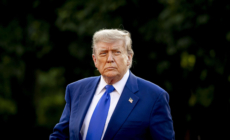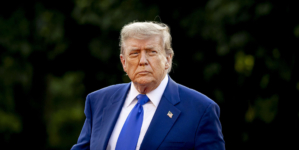-
Trans Swimmer Lia Thomas Stripped of Swim Titles in UPenn Trump Deal - 11 mins ago
-
Partial verdict reached in Diddy trial on sex trafficking and prostitution charges - 23 mins ago
-
Michigan dad accused of beating, choking son until he passed out because he ‘fell asleep on the couch’ - 28 mins ago
-
Urban Meyer on Big Ten rise & James Franklin title shot with Penn State | FULL INTERVIEW | The Herd - 34 mins ago
-
He escaped a ‘panic house’ in Mexico, where young drug users end up as hit men — or dead - 47 mins ago
-
Elon Musk learns that bullies aren’t your friends. Now what? - 52 mins ago
-
Trump’s Approval Rating Spikes With Millennials—Polls - 53 mins ago
-
Teacher murdered and dismembered by stranger; Couple killed and buried in the yard by granddaughter – TCNPOD - about 1 hour ago
-
INDYCAR Midseason Report: The Good, Bad & Ugly For Teams, Drivers - about 1 hour ago
-
FBI Joins Investigation as Body of Teen Missing Since May Found in Landfill - 2 hours ago
FM: Government incentives generated HUF 4,000 billion of investments in 2024
Minister Szijjártó said the government had signed agreements with 77 companies, including 23 Hungarian ones, on those investments.
Péter Szijjártó, Minister of Foreign Affairs and Trade, said the government incentives generated HUF 4,000bn of investments in 2024, making it the second-biggest year on record.
Minister Szijjártó said the government had signed agreements with 77 companies, including 23 Hungarian ones, on those investments. Investments by seven Chinese companies accounted for half of the investment volume, he added, noting big projects by companies from South Korea and Japan, too.
“The strategy of economic neutrality is working,” he said. He added that investments by Chinese, South Korean and Japanese companies had accounted for close to 80pc of investment volume last year, validating the success of the government’s Eastern Opening policy.
German companies made up the fourth-biggest group of investors, US companies the fifth-biggest and Swiss companies the seventh-biggest, he said. The vehicle and electronics industries were the backbone of new investments last year, followed by projects in the food sector, he added.
Nineteen agreements were signed on high value added projects involving business services, IT investments and R+D, he said. The locations of new investments show the East-West imbalance in Hungary is a thing of the past, he added.
Minister Szijjártó said changes had marked the start of a new era in the global economy with increased competition to attract investments. He added that the winners of that new era would be countries that could attract cutting-edge technology investments.
Hungary performed “extraordinarily well” in that respect last year, he said.
Source link






























